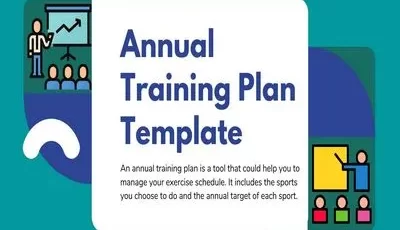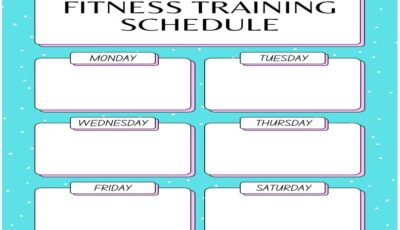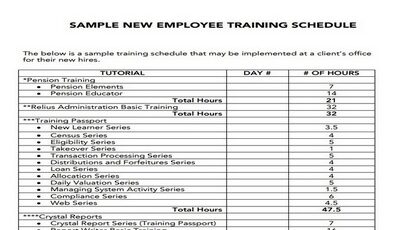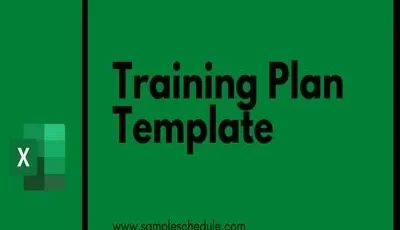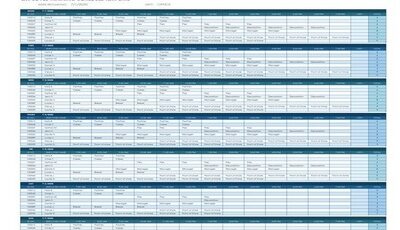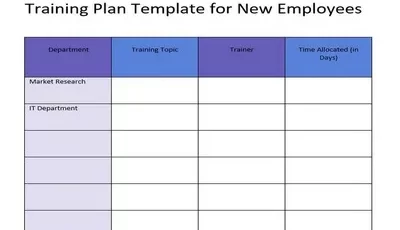Marathon training schedule 1 year – Hey there, future marathon runners! Are you ready to go on an exciting journey from being a beginner to running a marathon in just one year? It might sound like a big challenge, but with the right plan, you can do it!
Starting Your Marathon Training Schedule 1 Year Adventure
- A Year of Running: Imagine, in just one year, you could be crossing the finish line of a marathon. That’s 26.2 miles! It’s a big goal, but you’ll get closer with each step.
- Learning and Growing: You’ll learn so much about running and how strong and determined you can be.
Why a Training Plan Matters
- Follow the Plan: A good training plan is like a treasure map. It shows you where to start, how to keep going, and how to finish.
- Safe and Steady: The plan helps you increase your running slowly so you don’t get hurt and ensure you’re ready for the big day.
Training for a marathon is a fantastic way to show yourself your capabilities. With a year of hard work, practice, and fun, you’ll be ready to run your race and feel super proud of your achievements. Let’s lace up those sneakers and start this extraordinary running journey!
Months 1-3: Building the Foundation
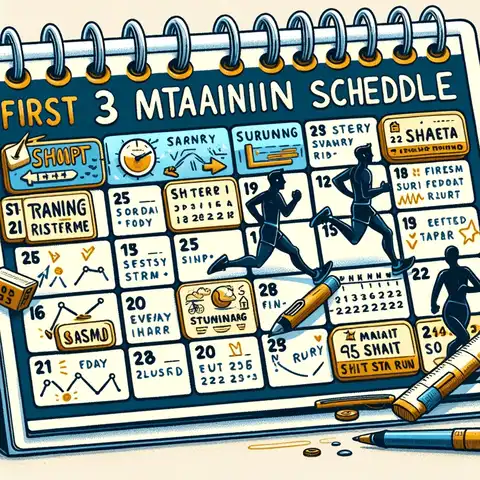
Marathon Training Schedule 1 Year The first three months of a year long marathon training schedule. It shows a calendar with notes for short runs
Beginning with Basics
- Starting Slow: In the first three months, your marathon training begins with short, easy runs. These runs are more about getting comfortable with running regularly than distance or speed.
- Gradual Progress: Slowly, you’ll increase the duration and intensity of your runs. This incremental increase helps your body adapt without the risk of injury.
Building Stamina and Strength
- Consistency is Key: Regular running builds endurance. Consistency matters more than how fast or far you run at this stage.
- Strength Training: Alongside running, begin simple exercises. It is crucial to improve your running routine and control injuries.
Learning Proper Running Form
- Form Matters: It is essential to run efficiently and avoid injuries. Focus on your posture, foot strike, and breathing.
- Technique Training: Consider getting guidance from a running coach or utilizing online resources to learn and practice correct running techniques.
Tips for Early Stage Training
- Listen to Your Body: Always pay attention to how your body feels. If you need rest, take it. If you’re feeling good, gently push yourself a bit further.
- Set Achievable Goals: Set small, achievable goals for each week or month. This could be running a distance or simply sticking to your training schedule.
Building Up: Months 4-6
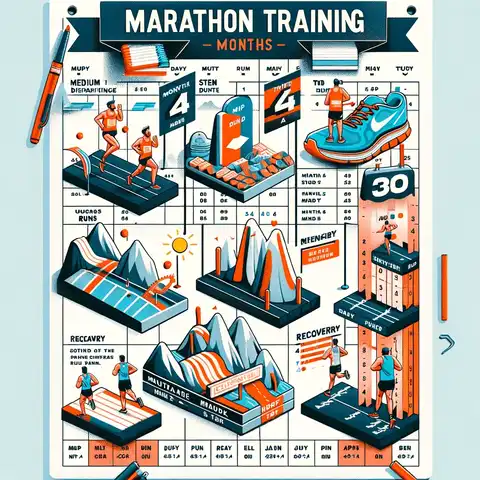
Marathon Training Schedule 1 Year Marathon training schedule for the months 4 to 6, including notes on medium distance runs, running on different terrains
Longer Runs
- New Challenge: In months 4 to 6, you’ll start running longer distances. These medium-distance runs help build your endurance, which is super important for a marathon.
- Slow and Steady: Remember to improve your space slowly. It’s not about running fast; it’s about running further each time.
Variety in Training
- Mix It Up: Now, add different running styles to your training. You might run faster quickly or jog on different paths, like hills or trails.
- Fun and Interesting: Changing your training keeps it fun and authorizes your body to become more robust in different ways.
Rest and Recovery
- Take Breaks: They are just as vital as running days. They let your body recover and get more powerful.
- Listen to Your Body: Bringing an additional day off is okay if you’re tired or sore. Your body will thank you!
Tips for Months 4-6
- Stay Motivated: Improve and celebrate your achievements, no matter how small.
- Stay Healthy: Eat healthy foods and drink plenty of water to keep your body strong and ready to run.
Months 7-9: Pushing Your Limits

Marathon Training Schedule 1 Year Marathon training schedule for months 7 to 9, illustrating long runs up to 26 miles
Running Farther, Step by Step
- Aim Big, Go Slowly: You’ll run longer in this part. You’re getting ready to run 26 miles! Each week, you’ll run a little farther. This helps your body get used to running more without feeling too tired.
When Running Gets Hard
- Hitting a Tough Spot: Sometimes, you might feel like you can’t run anymore. This is called “hitting the wall.”
- Keep Moving: To get past this hard part, think about your training, how you get ready in your mind, and what you eat.
More Than Running
- Try Different Exercises: Do other fun exercises like biking or swimming. These help you get stronger and stop you from getting hurt from too much running.
- Rest is Super Important: Don’t forget to take breaks. Your muscles need to relax and get strong.
How to Keep Going Strong
- Listen to What Your Body Says: If you hurt, it’s important to rest. Running too much can hurt you. Taking breaks when you feel sore is a good idea.
- Remember Why You’re Doing This: Think about your running goals. This can help you keep going, even when it’s hard.
The Final Stretch: Months 10-12
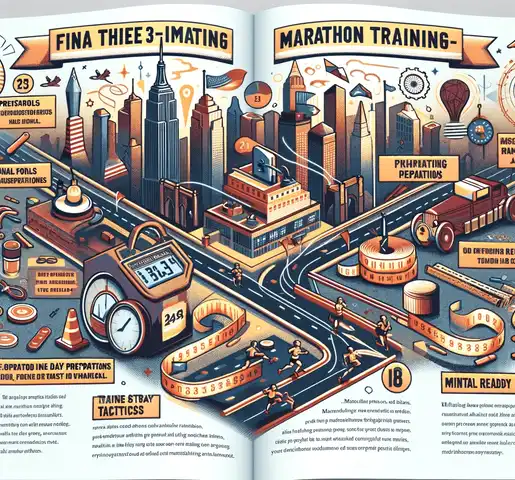
Marathon Training Schedule 1 Year The final three months of a one year marathon training schedule, highlighting final preparations, race day tactics
Perfecting Your Run
- Tuning Up Your Training: In these last few months, your training has focused on minor improvements. This means working on your running speed (pace), how you run (form), and how far you go (distance).
- Running Smarter: You’ll practice running at your own pace on race day.
Tapering: The Secret to Success
- Slowing Down to Speed Up Tapering means reducing how much you run as you get closer to the race. This might sound strange, but it helps your body rest and store energy for the big day.
- Feeling Fresh: During tapering, your runs get shorter. This rest period is key to ensuring you’re ready and energetic for the marathon.
Race Day Ready
- Eating Right: What you eat before the race is super important. You want to eat foods that give you energy and are easy to digest.
- Staying Hydrated: Drinking enough water before and during the race is crucial. But be careful not to drink too much right before you start running!
- Mental Game: Getting ready for a marathon isn’t just about your body; it’s also about your mind. It’s normal to feel nervous but remember all your hard work.
The final months of your marathon training are about ensuring you’re as ready as you can be for race day. By fine-tuning your training, tapering correctly, and preparing mentally and physically, you’ll be set to do your best. Remember, no matter what happens on race day, you’ve already achieved so much by getting to this point!
Key Components of Training
Various training elements:
- Strides and Tempo Runs: These are short bursts of fast running. They help you get used to running quicker and improve your speed. Tempo runs are longer and are done at a steady pace. They’re great for building endurance.
- Uphill Sprints: Running up hills helps build strength in your legs. It’s rugged but perfect for you.
- Walk/Run Sessions: These are a mix of walking and running. They’re perfect for beginners or when you’re feeling tired.
Warming Up and Cooling Down
- Preventing Injuries: Starting with a warm-up is super important. It gets your body ready for running and helps prevent injuries. Cool-downs after running help your body recover and reduce muscle soreness.
- Easy Exercises: Warm-ups can be simple, like light jogging or stretching. Cool-downs can include slow jogging or walking and some stretches.
Cross-Training and Rest
- Mixing It Up: Cross-training means doing different exercises, like swimming, biking, or playing soccer. This helps improve your overall fitness and keeps training fun.
- Rest Days are Important: Your body needs rest to recover from all the running. Taking days off enables you to avoid getting too tired or getting hurt.
Preparing for Race Day
Final Weeks Before the Marathon
- Lighter Training: As the marathon gets closer, your training should become less intense. This helps your body rest and store energy for the big day.
- Practice Your Pace: Do a few shorter runs at the pace you plan to run during the marathon.
Understanding Race Day Logistics
- Know the Plan: Learn about the marathon’s route, where to get water, and where the bathrooms are.
- Arrival Time: Ensure you know when to arrive and where to go. Getting there early is good so you have time to warm up and not feel rushed.
Hydration and Nutrition
- Drink Water: Staying hydrated is essential. Practice drinking small amounts of water during training to know what works best.
- Eat Right: Have a healthy breakfast on race day. It should be something you’ve eaten before long runs, so you know it makes you feel good.
Mental Preparation
- Stay Positive: Think about all your hard work and how much you’ve learned.
- Have a Plan: Consider what you’ll do if you start feeling tired or something doesn’t go as planned.
Getting ready for race day is about more than just physical training. Remember, you’ve trained hard for this; race day is your time to shine!
Conclusion
Keep Going; You’re Doing Great!
- Stay Motivated: Training for a marathon is a big challenge, but remember how much you’ve already achieved. Every run, every mile, brings you closer to your goal.
- Consistency is Key: Keep up with your training plan, even when it gets tricky. Regular practice is what makes you stronger and more prepared for the marathon.
Celebrate Your Progress
- Every Step Counts: Every time you run, you’re getting better.
- Learn and Grow: Through training, you learn not just about running but also about yourself. You discover how strong, determined, and capable you are.
The Journey Matters
- More Than Just a Race: Running a marathon isn’t just about finishing the race but the journey to get there. You grow stronger, not just in your body but also in your mind and heart.
- A Personal Achievement: Completing your training and reaching race day is a considerable achievement.
Remember
Marathon training schedule 1 year – Training for a marathon is about more than just running. It’s about setting a goal, working hard to achieve it, and growing along the way. No matter how the race goes, you’ve accomplished something extraordinary. Keep running, learning, and, most importantly, have fun on your marathon journey!
